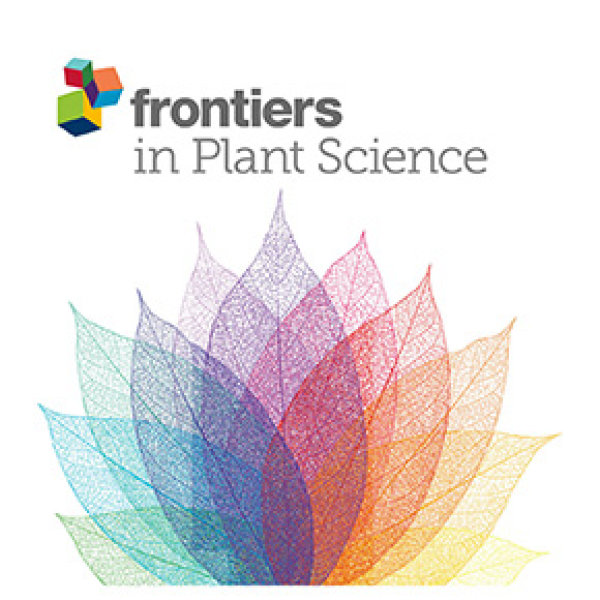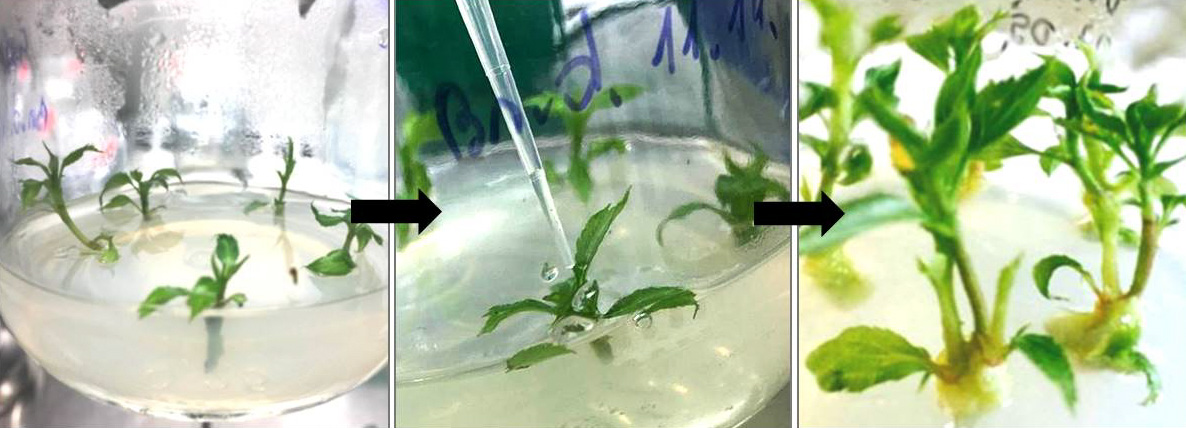
One of the world’s leading plant science journals “Frontiers in Plant Science” has published the article prepared by the researchers of Institute of Horticulture, Lithuanian Research Centre for Agriculture and Forestry (LAMMC IH): Dr. I. Tamošiūnė, Dr. G. Stanienė, Dr. P. Haimi, Prof. Dr. habil. V. Stanys, Dr. R. Rugienius and Dr. D. Baniulis.
Prof. Dr. habil. Vidmantas Stanys maintains that in vitro plant tissue cultivation methods have promising applications in agriculture and biotechnology, i.e. in plant propagation, production of compounds, conservation of genetic resources, plant breeding, gene engineering. Nonetheless, the use of the in vitro technologies induces stress leading to inhibition of plant growth, which in turn results in poorer shoot development and thus weaker shoots. Potential of application of the endophytic microorganisms to reduce plant stress has been under-explored, therefore researchers attempt to find ways to mitigate this effect.
The publication presents dr. Inga Tamošiūnė’s research results obtained during her PhD studies focused on endophytic bacteria. She claims that plants, like animals, are characterised by close interactions with microorganisms that provide versatile nutrition, disease and stress resistance. Endophytic bacteria are known to be living in the internal tissue of plants without causing any disease symptoms. These bacteria are found in almost every plant with whom they interact without causing diseases, and thus promote plant growth. In recent years, there has been a worldwide increase in interest in microorganisms. It is expected that microorganisms that enhance plant productivity and stress resistance could supplement or even supersede chemicals used in agriculture and biotechnologies.
The endophytic bacteria of Bacillus and Pseudomonas genera, widely distributed in nature, have been receiving most of researchers’ attention.
In the publication entitled “Endophytic Bacillus and Pseudomonas spp. modulate apple shoot growth, cellular redox balance, and protein expression under in vitro conditions”, the researchers have selected four strains of Bacillus and Pseudomonas spp. endophytic bacteria that reduce the stress of apple tissues in vitro and improve the propagation of additive shoots.
The results suggested, that co-cultivation of apple shoots with these endophytes induced the highest accumulation of biomass and additive shoot number in vitro. Besides, the studies have shown that endophytes reduce the symptoms of apple shoot stress induced by in vitro conditions, therefore this effect can be applied to in vitro cultivation of hard-to-reach plants.
According to the authors, until now it is unclear how the relationships between plant and microorganisms develop: what are the key signals that induce mutually coordinated and beneficial interaction. The authors have found that at the initial phase of interaction, the endophytic bacteria and apple cells form an association, which is characterized by distinct changes in accumulation of reactive oxygen and nitrogen species.
